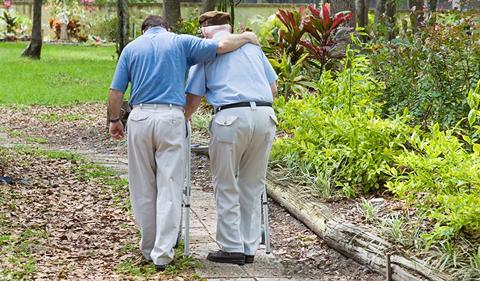Nearly 1 in 5 people with advanced stage dementia were seen by a paramedic in their last month of life, suggesting a reactive rather than planned approach to their end of life care

Policy and research on dementia tends to focus on supporting people to live with the condition or looking for that elusive cure. This is of course vital, but at the moment it tends to overshadow any conversation as to how people die with dementia.
Dementia has become the UK’s biggest killer. With people living for longer and dying at an older age, the reality is that many of us are likely to develop dementia as well as a number of other terminal conditions.
The problem is that, at present, people with dementia have limited access to both specialist care and also to palliative care.
Advanced dementia
A recent study from the Marie Curie Palliative Care Research Department at University College London found that just 1 per cent of people with advanced dementia were seen by a geriatrician or an older person’s psychiatrist. Fewer than a third (28 per cent) were seen by a specialist palliative care team, and usually only in the last month of life.
The first step is giving the same attention and urgency that we give to conversations around how people live with the condition, as to how they die with it
However, 96 per cent of people in the study with advanced stage dementia saw a GP in the last month of their life. GPs are often providing the bulk of care, but many are having to do so with little specialist support. It’s, therefore, not surprising that nearly 1 in 5 people (19 per cent) were seen by a paramedic in their last month of life, suggesting a reactive rather than planned approach to their end of life care.
These statistics paint a worrying picture. This is why Marie Curie is looking at how health and social care services might be developed and configured to provide more specialist care. We’ve funded the development of a new COMPASSION model, which involves an Interdisciplinary Care Leader bringing together generalist and specialist care professionals across primary, secondary and tertiary settings for people with advanced dementia.
We also recently opened a specialist dementia support service in Norfolk, where a Marie Curie nurse will help with advanced care planning, as well as coordinating health and social care professionals.
We need to see more of these kinds of interventions at scale if we are going to tackle the challenge presented by the rising numbers of people dying with dementia. The first step is giving the same attention and urgency that we give to conversations around how people live with the condition, as to how they die with it. Time is very much against us.





























No comments yet